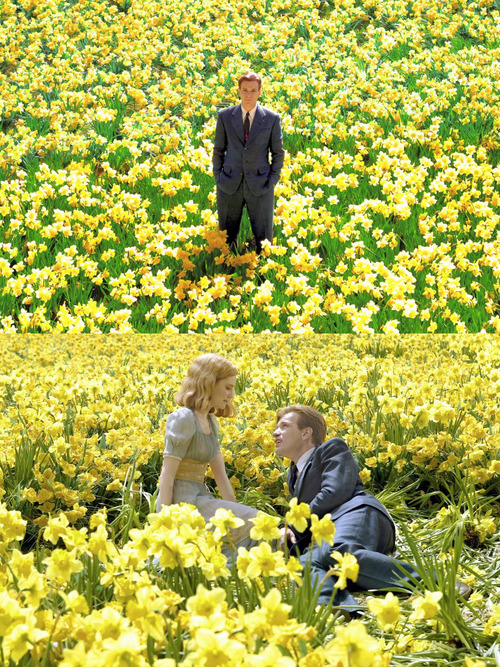Hey there, folks! Welcome to our semi-new Worldbuilding Wednesday series, where Krispy and Alz dig deep down into the
why, the
how, and the
for the love of god DON'T DO THAT of worldbuilding.
Today is going to be a little intro post about our motivations for doing this, and some initial thoughts on worldbuilding.
As you may know, Alz has been (and still is) reading
Stormdancer and hates it with a holy passion due to its disrespectful treatment, exoticizing, and general abuse of Japanese culture. Some measure of said passion is mentioned in passing in
this post, which also includes links at the bottom to further discussion of problematic worldbuilding and cultural appropriation.
This has spurred us into frequent
griping discussion about depicting non-traditional fantasy settings, i.e. not medieval Western-European settings, and especially how one goes about writing a story based in a foreign cultural setting--and before you get your hackles up, I (Alz) am using "foreign" here to mean "any culture with which the author is not native and/or intimately familiar."
We will also be discussing what "based upon" means, and how the term can lead to both innocent and deliberate cultural appropriation--by which we mean "acculturation from a minority culture by a dominant culture." (Thanks,
Wikipedia.)
So! There's our intro. Now some basic thoughts on worldbuilding!
----
Don't Be Lazy
If you're going to worldbuild, don't be lazy about it.
All right, so we were tempted to end it right there, which surely would win us points for succinctness, but doesn't explain how much lazy worldbuilding bothers us.
When creating a world--be it alternate universe/alternate history, paranormal, or pure fantasy--the world needs to
work. The society has to make sense, its rules have to be plausible, its people act reasonably within the bounds of the world, and everything should either make sense or have an explanation for why it's different. This is the foundation of good worldbuilding and often the foundation of a good story.

Sometimes you can have too much of one and not enough of the other though. For example, we didn't like (Alz hated)
Divergent's worldbuilding because we just couldn't fathom how our current U.S. society became the society of the book: divided into 5 factions based upon 5 virtues and so rigidly enforced that belonging to a particular faction dictates not only what you wear and how you think and act in public but how you do those things in private as well. Since there was no real backstory, history, or explanation as to how our society became theirs, we couldn't suspend our disbelief and enjoy the world.
On the other hand,
Divergent is rich in character development and thematic exploration, and the daily world is gritty and full of realistic obstacles, which made up for the clumsy implausible setting. Which, by the way, we would have accepted without batting an eye if it had been a purely fantasy world instead of based in Chicago--linking the book world to the real world was what killed it for us.
For the opposite example, there's
When the Sea is Rising Red by Cat Hellisen [Alz read this], which has a gorgeous atmospheric world built from the ground up, haunted and full of seaside breezes and old magic and thick with politics and a thriving underworld. It also has a heroine who doesn't matter, a plot that's hardly there, and interchangeably indistinguishable characters.
For a good example of both, take
Seraphina by Rachel Hartman. We wrote a
joint review for the book in which we praise the worldbuilding as encompassing, engrossing, enriching, and other good things beginning with en-.
The three examples cited above are all Western-European based fantasies (
When the Sea is Rising Red is more diverse/non-traditional than that label implies though) or based upon a post-apocalyptic future of Western civilization. We'll get into other cultures and worldbuilding problems in a future post.
Mind you, even when writing historical and contemporary fiction, worldbuilding is essential--instead of building a world from scratch, the onus is upon you to write a world that is realistic and rich in context. These are urban and historical fantasy examples (mostly because neither of us have picked up a straight contemporary in a while), but they illustrate what we mean well.
For worldbuilding rich in context, Libba Bray's
A Great and Terrible Beauty [Krispy read this] gives us all the trappings of Victorian England from the sights and sounds to the very real constraints placed upon women and girls of the time.
A Great and Terrible Beauty is a fantasy, but that doesn't mean the heroine isn't subject to the mores of her historical time period. This was something we appreciated about Susan Dennard's heroine, Eleanor Fitt, too in
Something Strange & Deadly, which was set in Victorian Philadelphia. Sure, she had zombies to worry about, but she also worried about her family's social standing and the limited avenues of her future.
A contemporary example of worldbuilding rich in context is Holly Black's
Curseworkers books [Krispy read this]. The trilogy is set in the modern U.S., the only difference being the existence of Curseworkers - people who can change you (or even kill you) with a touch. But this one difference is threaded into the context of the U.S., so that it fits seamlessly into a world that is recognizably ours. The existence of Curseworkers affects aspects of history, politics, crime, law, and even fashion (e.g. everyone in this version of the States wears gloves).
For some pure contemporary worldbuilding thoughts, here's an excellent post on the importance of using Setting from Sarah Enni:
How NOT to Incorporate Setting, Courtesy of Top Chef
So worldbuilding from the Real World is just as hard as writing straight fantasy. For the purposes of this and future posts though, the focus is going to be on writing fantasy. But that doesn't mean that 90% of this doesn't apply to every other genre of fiction-writing.
Q4U: What are some worldbuilding topics you'd like to see us discuss?
Our previous posts on worldbuilding:
World-Building Wednesday: Books with good worldbuilding!
World-building Wednesday: Krispy muses on the difficulties of worldbuilding in her own story
A Matter of World-building: Pondering when "based upon said culture" turns into "this
is said culture."
Hmm, for consistency's sake, I'm going to pitch it to Krispy that we should just use worldbuilding as a singular word and concept instead of jamming a hyphen in there.




































